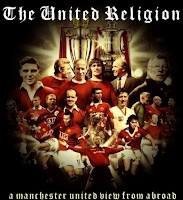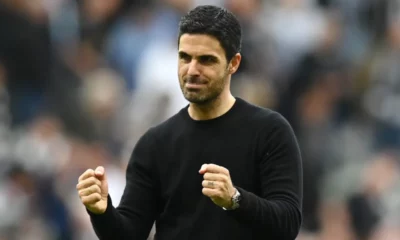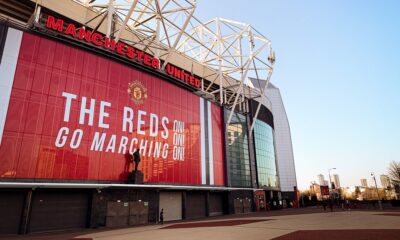Man Utd General News
Referees: Accountability Will Lead To Consistency In Football

Sir Alex Ferguson is currently serving an unjust five-match ban for his remarks about a referee, but it may be unearthing one of the greatest problems in modern sport.
The Manchester United manager openly criticized Martin Atkinson for not being fair to his players, so, in return, he was hit with the longest-ever ban given to a manager by the Football Association for disagreeing with his decisions, but, thankfully, it has brought more attention to the recent abysmal refereeing performances.
In fairness, referees have a very large responsibility of keeping the peace in a football game, but the FA, and the other governing bodies in the sport, need to make sure that they hold officials accountable by having to explain their inconsistent decisions that they make, or do not make for that matter.
Over the last 20 years, it has been stated on numerous occasions that United has been the beneficiaries of some skeptical referee decisions, especially at Old Trafford, but over the last three months that has been anything but the case.
For speaking his mind, Sir Alex’s punishment is that he will miss four more crucial matches including the Semifinal of the FA Cup against Manchester City, and the highly-anticipated match against Arsenal at the Emirates. It was not just Atkinson’s diabolical decisions that upset and encouraged Sir Alex to speak out against him, because it was just the boiling point for what he, and everyone else, has been seeing on consistent basis – not just in United matches, either.
Players, managers and fans are urged to respect referees, but how can you respect someone that does not return the favor? If a player or a manager do not perform their job to the best of their ability every week, they are ripped by the press or their fans, but referees are protect, almost put on a pedestal, for some reason or another.
It is not unreasonable to ask that, like all managers are forced to do by the FA, the referee should have to answer questions to why they made those certain calls, and their incident reports should be made public knowledge. If this were to happen, a lot more respect would be heaped on them if they squared up to a camera after the game and answered the same questions that are normally asked to just Sir Alex by having to defended their rulings.
Referees have a tremendous responsibility to police a football match, which, at times, is on the verge of boiling over, but it’s their attitude that needs to be curbed.
Mentality
To be an official, a person must have mental toughness so they do not wilt under pressure, but some of these Barclays Premier League officials often mistake being pompous for confidence. As the policeman of a football match, a referee should have it instilled in your brain that you are never bigger than the game, but that is not the case with some of these officials today.
Phil Dowd, who officiated United’s match against Liverpool, which they rightfully lost, showed complete arrogance rather than assertiveness. Because of the ferocity of the rivalry, every North West Derby has the potential of having one or two hotly-contested moments, and one would hope that the referee would handle those situations with the appropriate authority.
Authoritative
However, there is one thing that referees often get twisted is the idea of not dictating the outcome of a match, so some of these officials give players the benefit of doubt. If a players commits a foul, no matter where it is, the whistle should be blown and a free-kick and the proper punishment given.
So many officials call fouls in the box much more loosely than they do in between those areas, which is an absolute crime. That said, if a referee were to whistle for every bit of contact, the supporters inside of Old Trafford would be treated to a tremendous amount of stop-start action.
Officials are allowed to use common sense when officiating, but, as in any walk of life, we should all know that that is anything but common these days. That blame does not just rest on the shoulders of the referees, but the high-ranking officials, which delegates the laws of the game.
The problem, just like with every separate industry, is that the people in the executive positions used to be a referee, which means that cannot cross the brotherhood of the current group of officials. Like any other profession, all referees have to study books about officiating before, but these black and white books have way too much gray area in them.
Interpretation
There are two decisions that have the most gray area about them: handling of the ball; and serious foul, which were both prevalent in United’s 1-0 win over Bolton. Andre Marriner waved the clearest of penalties in the first 10 minutes of the match, and then 14 minutes from time, he brandished a debatable red card to Jonny Evans for a 50/50 challenge on Stuart Holden, who also had the same intent in the challenge.
Evans did have his studs showing so you could see how Marriner sent him for an early bath, but his positioning prohibited seeing Holden doing the same exact thing. Those two controversial calls could very well have condemned United to an undeserved, unfortunate defeat that could have ultimately cost them the Premier League title.
In professional sports, there is one thing that will really decide a match and that is momentum and that was certainly the case last season. The 2009/10 title was greatly influenced by another shocking decision by Atkinson, three on one play, at Stamford Bridge, and then Mike Dean’s assistant failing to rule two Chelsea players being in an offside position cost United six points, which they lost out the trophy by a lonely point.
Everyone says that refereeing decisions equal themselves out over a course of the season, but, hopefully, one of them does not decide Manchester United’s fate – either way.
Submitted by The United Religion


















